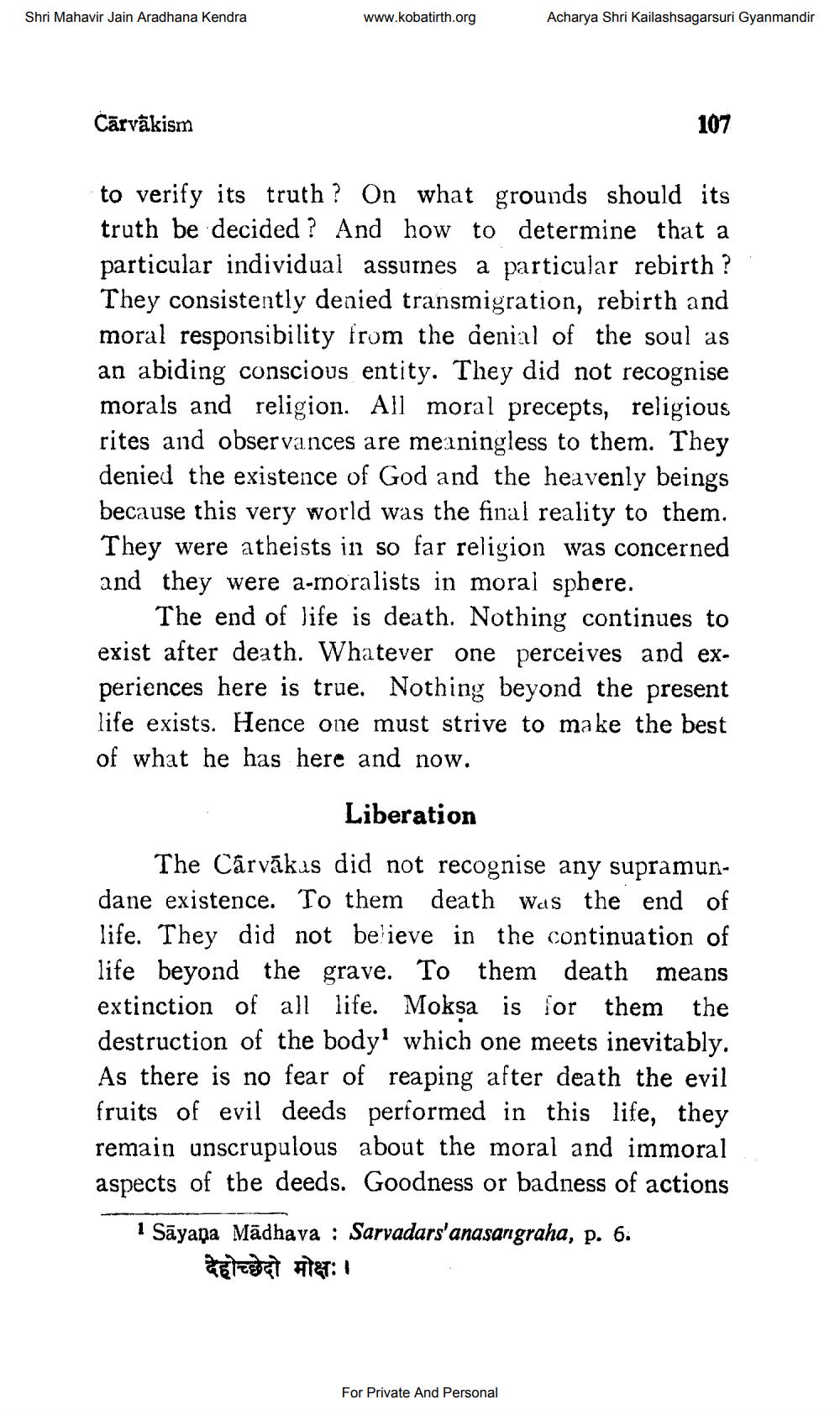________________
Shri Mahavir Jain Aradhana Kendra
www.kobatirth.org
Acharya Shri Kailashsagarsuri Gyanmandir
Cārväkism
107
to verify its truth? On what grounds should its truth be decided ? And how to determine that a particular individual assurnes a particular rebirth? They consistently denied transmigration, rebirth and moral responsibility from the denial of the soul as an abiding conscious entity. They did not recognise morals and religion. All moral precepts, religious rites and observances are meaningless to them. They denied the existence of God and the heavenly beings because this very world was the final reality to them. They were atheists in so far religion was concerned and they were a-moralists in moral sphere.
The end of life is death. Nothing continues to exist after death. Whatever one perceives and experiences here is true. Nothing beyond the present life exists. Hence one must strive to make the best of what he has here and now.
Liberation The Cârvākıs did not recognise any supramundane existence. To them death was the end of life. They did not believe in the continuation of life beyond the grave. To them death means extinction of all life. Moksa is for them the destruction of the body' which one meets inevitably. As there is no fear of reaping after death the evil fruits of evil deeds performed in this life, they remain unscrupulous about the moral and immoral aspects of the deeds. Goodness or badness of actions 1 Sāyaṇa Mādhava : Sarvadars'anasangraha, p. 6.
देहोच्छेदो मोक्षः।
For Private And Personal




